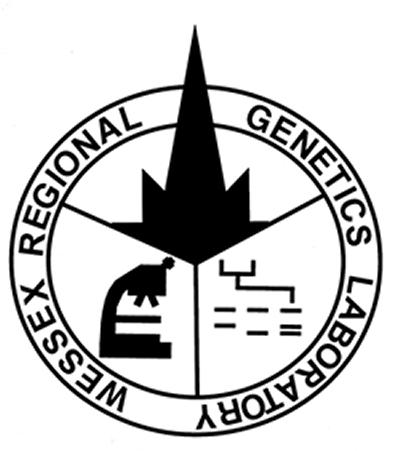
Which patients could be tested?
We would be happy to provide diagnostic testing for all patients presenting with neonatal diabetes or thought to have transient neonatal diabetes whatever their age now. This is provided free of charge as it currently has research funding.
Specific features that increase the chance of diagnosis
- low birth weight
- a family history of neonatal diabetes or transient neonatal diabetes.
The present age of the patient is not important and patients diagnosed in the first six months of life who are now adults would be appropriate for testing.
We would strongly recommend taking blood or DNA from both parents as well as the child, as this will allow us to establish the inheritance pattern which is particularly important in imprinting disorders. Furthermore it will provide evidence of whether a genetic finding has arisen de novo.
We work closely with Exeter Diabetes Research department and the Centre for Molecular Genetics at the Peninsula Medical School and Royal Devon and Exeter Hospital, Exeter, UK. If 6q24 testing is negative samples can be sent to Exeter for diagnostic testing if this is requested.
How to obtain genetic testing
The samples should be labelled with name and date of birth and can either be:
- Blood 3-5mls: taken in tubes containing EDTA and couriered fresh (not frozen). The samples must arrive in UK within 5 days, so ideally send on a Monday. This should be sent in a package with at least two layers of wrapping and include absorbent material to absorb any blood that leaks out of the tube – preferred option.
- Or made into DNA in your own laboratory. There should be 2-10 micrograms (to allow repeats) sent at room temperature. Again please make sure the tube is very securely sealed.
To send with samples
When you send us a sample for genetic testing, please send us all details on our TNDM Clinical details form where possible. This input allows for the gradual accumulation of information for this rare disorder allowing better prognostication for future cases. This also provides an opportunity to initiate follow up.
Details required include:
- Referring clinician details
- Patient Details
- Clinical Presentation
- Current status of patient
-
Any other clinical features
Consent
When taking samples you should get written consent for the testing - as with any genetic test. We ask that you ask for consent to test for the genetic cause of the diabetes (or associated imprinting disorder) rather than just for 6q24 testing.
The consent form can be downloaded by clicking on the link on the righthand side of this page.
Sending Samples
Samples can be sent to:-
Dr Deborah Mackay
Reader in Human Genetics
Wessex Imprinting Group
Human Genetics and Genomic Medicine
Wessex Genetics Laboratory
Salisbury Health Care Trust
Salisbury
SP2 8BJ
djgm@soton.ac.uk (Please email Deborah to tell her the sample is en route)
tel 01722 425048
And clinical details can be discussed with:-
Dr Karen Temple
Prof of Medical Genetics
and Honorary Consultant in Clinical Genetics
Wessex Imprinting Group
Princess Anne Hospital
Coxford Road
Southampton
SO16 5YA
tel 023 8120 6170
Confidentiality
We put these samples through diagnostic procedures and so deal with them as diagnostic samples. Hence, we do use names and dates of birth to give us 2 identifiers on each sample. This information is then dealt with in complete confidentiality. This means we issue a report with the patient's name and date of birth on it that can join their clinical records while an anonymous one could not. Using the patients' names also prevents the same patient being referred by more than one clinician. We would request that a sample comes with a name and date of birth. Our lab is dealing with over 50 diagnostic DNA samples a week and full confidentiality has to be maintained.
Results
We will send a result as soon as possible. All physicians referring patients will receive a written report 6-8 weeks after the receipt of the sample. If we find a genetic change we also will try to email the physician.
Other genes
If we do not find a 6q24 abnormality we are happy to send DNA to Exeter genetic service (http://projects.exeter.ac.uk/diabetesgenes/ ) for other genetic causes of transient neonatal diabetes.
Costs for genetic testing
Patients recruited to imprinting disorders finding out why – all genetic tests are free
6q24 TND testing is free
For costs of testing for :-
Beckwith Wiedemann syndrome
Silver Russell syndrome
Angelman syndrome
Temple syndrome
Wang syndrome
Uniparental disomy for any chromosome
See www.wrgl.org.uk